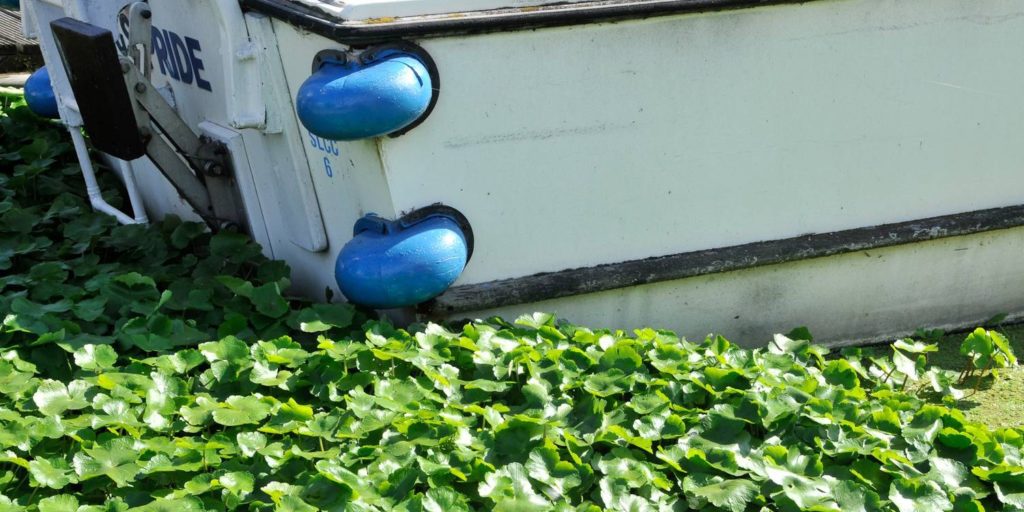RYA will respond to invasive species consultation

The Department for Environment, Food and Rural Affairs has launched a consultation on management measures for controlling the spread of invasive species in England and Wales.
The RYA intends to respond to the consultation which is inviting views on measures being considered to deal with the spread of 14 invasive alien species, including floating pennywort, curly waterweed, Chinese mitten crab, and signal crayfish.
Invasive species challenge the survival of some of our rarest animals and plants, and damage some of our most sensitive ecosystems. The impact of invasive alien species on our domestic and global biodiversity is severe and growing. They also have an impact across a range of industries and networks, from farming to the building industry and national waterways.
Invasive non-native species (INNS) can be transported to the UK in a number of different ways. They can be carried by shipping vessels, transported by the aquaculture industries and even swept across an ocean on currents. They can also be transported from place to place by hitching a ride on boat hulls, anchors and propellers, or being carried in ballast and bilge water.
An EU regulation on the prevention and management of introduction and spread of invasive alien species came into force in 2015. For widely spread species of Union concern, the regulation requires effective management measures to be put in place, so that their impact on biodiversity, the related ecosystem services and, where applicable, on human health or the economy are minimised. Management measures consist of lethal or non-lethal, physical, chemical or biological actions aimed at eradication, population control and containment of a population of species of Union concern.
What you can do to help curb the spread
As well as the devastating environmental impacts, non-native species can spread disease, restrict navigation, block waterways, clog up propellers and add significantly to the management costs of our waterways. Recreational facilities can also suffer as a result of these invasive species.
RYA planning and environmental officer Duncan Savage says: “Measures which can be adopted by boaters include taking care to avoid transporting invasive species between waterways by observing the RYA’s “check, clean, dry advice”. We know that our members are already engaging with this but we want to continue raising awareness among the sailing community. This consultation offers the opportunity to communicate the efforts of boaters to minimise the problem and the impact invasive species can have on navigation of waterways.”
The Green Blue, the environment initiative between the RYA and British Marine, has been working closely with the GB Non Native Species Secretariat (NNSS), the Environment Agency, Natural England, Natural Resources Wales, Marine Scotland and Invasive Species Ireland to develop the check, clean, dry guidance for recreational boaters.
- Check boats, equipment and clothing for living plants and animals. Pay particular attention to areas that are damp or hard to inspect.
- Clean and wash all equipment thoroughly with fresh water and anti-foul boats annually. Remove visible fouling and put in the bin, not back in the water.
- Dry responsibly! When recovering a boat, trailer, dinghy, personal watercraft or RIB, drain water from every part and all equipment that can hold water, including any water that collects in bilges, before leaving the site. Clothing and equipment should be thoroughly dried for as long as possible before being used elsewhere.
For further information visit The Green Blue website.
Have your say
The RYA is welcoming the views of boaters while we formulate our response to the consultation. Please email environment@rya.org.uk. Details of the consultation and the consultation document can be found on Defra’s consultation pages.
Responses should be received by 29 August 2019.










